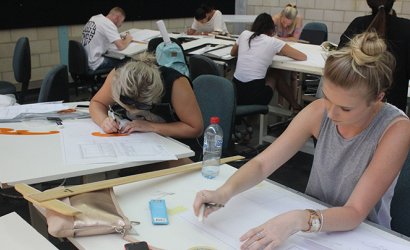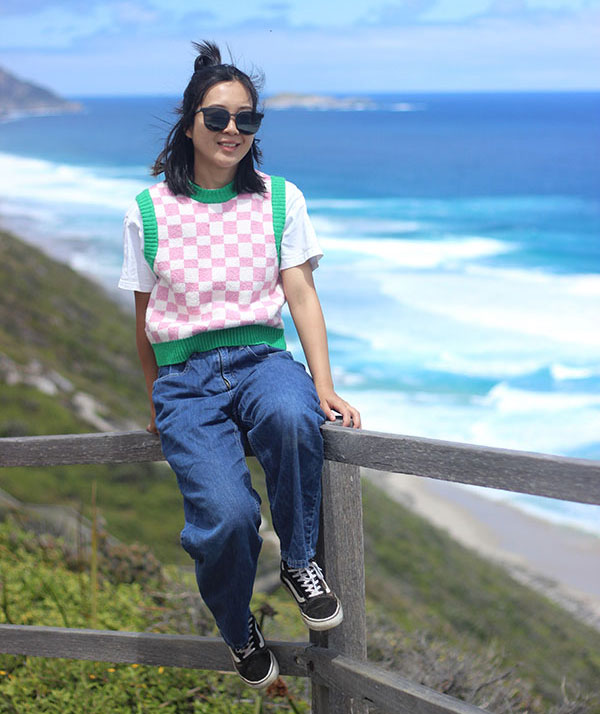

Why choose this course?
Elevate your fashion future with this qualification.
Get the skills for advanced roles in the industry. Shape the future of fashion by developing versatile expertise, knowledge and creativity, and adept management skills to excel in this dynamic field. Apply and build on this expertise in a work placement component.
Dive into emerging technologies, innovation and virtual 3D sampling. Embrace the swiftly evolving fashion scene.
Instil a product stewardship mindset, fostering ethical practices and circular economy awareness for a responsible and sustainable fashion future.
Advanced Diploma graduates may step into a world of design innovation, creativity, and leadership through job roles such as Fashion Entrepreneurs, Designers, Product Developers, Senior Patternmakers, Garment Technologists, or Production and Supply Chain Managers.
Career opportunities
- CAD Operator
- Pattern Designer
- Patternmaker
- Production Manager
- Specialised Construction Machinist
When choosing a course, it's important to think about the key skills and knowledge you'll need, as well as how you'll be assessed. Take a look at this information and consider if you might face any challenges in meeting the course expectations and requirements.
- employ creative and technical skills within the Fashion industry.
- use initiative and judgement in the planning and management of a fashion brand.
- use emerging technologies in virtual sampling in the fashion and apparel sector.
- apply and engage in sustainability and circular economy.
-
An IELTS score (academic) of 6.0 with no band score less than 5.0 or equivalent.
-
Completion of MST50122 Diploma of Apparel, Fashion and Textiles (Design and product development) (or equivalent) is required for entry into this course.
There may be further semester intakes available for enrolment. You can view any further intakes when you submit your online application(opens in a new tab).
For information about pathways from TAFE to university, view our Pathways to university page.
How to apply
Apply to study at TAFE in six steps:
- find a course;
- check entry requirements;
- submit an application;
- accept your offer and pay;
- apply for your student visa; and
- receive your visa and come to Australia for your studies.
TIWA Course Guide
A guide to studying at TAFE in Western Australia, including study options, facilities and campus locations!
Download study area guide(opens in a new tab)
Contact us(opens in a new tab)
TAFE International Western Australia (TIWA) is the Registered Training Organisation (RTO) and Commonwealth Register of Institutions and Courses for Overseas Students (CRICOS) provider, for the delivery of training to international students, enrolled in a TAFE course in Western Australia. This nationally recognised course is delivered by a Western Australian TAFE college on TIWA's behalf. TIWA retains responsibility for the quality of the training and assessment delivered by the TAFE colleges and for the issue of certification documentation to students.


